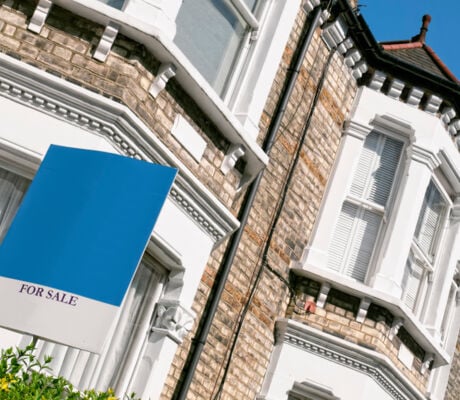A referendum on Britain’s EU membership may seem far removed from the London property market.
According to Halifax, confidence in the UK housing market is at its lowest in over a year. Similar drops were seen before the 2015 general election, with the looming spectre of mansion tax, and before the vote on Scottish independence in 2014. If the mere fact we are holding a referendum can have such an impact, what would happen in the event of a Brexit deserves serious consideration. It is difficult to talk about what would happen if we were to leave with any authority – after all, EU membership wasn’t designed to be something you could cancel, and we are in unchartered waters. At this stage, only one thing is certain; an exit would usher in a period of deep uncertainty, and uncertainty is poison to the housing market.
In the longer term, solid arguments can be made on each side. In the remain camp are those who say an EU exit would dry up investment in London property and cause prices to plummet. Among them is Mark Carney, governor of the Bank of England, who fears weaker levels of investment damaging the economy. At the moment, London is the city of choice for wealthy overseas investors. A Brexit would be felt the most keenly in central London, where 49% of the homes in the £1m+ bracket are currently bought by foreign nationals. Fewer sales to EU nationals could result in a painful dip in house prices. According to a KPMG poll of 25 global real estate investors, 66% believe a Brexit would result in a significant drop in investment in UK property. The implication is that the view of UK property as a safe haven for wealthy investors’ money would take a hit. Investors look for a stable economic and political backdrop, and London’s stability has long been one of its main draws; this could go out of the window were we to leave the EU.
At an International Monetary Fund meeting in Washington this month, Chancellor George Osborne – who has made no secret of his firm pro-remain stance – suggested an exit could also cause mortgage rates to jump up. ‘Families will be paying the price if Britain votes to leave the EU,’ he warned, echoing similar predictions made by Carney earlier this year. In the short term, lenders could react to the shock and financial instability by pushing rates up. Osborne’s argument is predicated on the notion that the plummeting pound (caused by investors selling off their UK assets) would drive up the cost of imports and increase inflation. The Bank of England, so his argument goes, could then increase interest rates in order to bring inflation under control and make sterling more attractive on the foreign exchange market.
Of course, for all of these arguments, strong counter-cases have been made. Several economists believe the Bank of England’s next move if we voted to leave would actually be a rate cut to offset the shock to the economy, bolstering domestic demand and offering support to credit markets. Only if the fall in sterling turned into a full-blown crisis would rates rise, and at the moment this is a distant possibility – but a risk nonetheless. There are also those who suggest a depreciation in sterling would mean international investors could buy British property cheaply, and this influx could make up for stilted investment in other areas.
Inevitably, most of these arguments are pure speculation. To return to what we do know: in the wake of a leave vote, there would be years of negotiation as the terms of our exit are decided. During this period, we can expect stagnation as investors batten down the hatches and wait it out. London would be the hardest hit.
We know the London property market functions best in a healthy economy. Leaving the EU would therefore be a huge risk – and we have a lot to lose.





